The University of Chicago Press, Chicago 60637
The University of Chicago Press, Ltd., LONDON
1996, 2007 by The University of Chicago
All rights reserved. Published 2007
Printed in the United States of America
16 15 14 13 12 11 10 09 08 2 3 4 5
ISBN-13: 978-0-226-73892-5 (paper)
ISBN-10: 0-226-73892-2 (paper)
This translation is based on the 1932 edition of Der Begriff des politischen, published by Duncker & Humblot. Foreword and Translator's Note to the 1996 Edition 1996 by The University of Chicago. Acknowledgments, Introduction, Translator's Note, and English translation of Der Begriff des politischen 1976 by George Schwab. English translation of Notes on Carl Schmitt, The concept of the political 1995 by The University of Chicago.
This expanded edition includes The Age of Neutralizations and Depoliticizations (1929), translated by Matthias Konzett and John P. McCormick, first published in Telos 26, no. 2 (1993): 13042. Reprinted by permission of John P. McCormick.
Library of Congress Cataloging-in-Publication Data
Schmitt, Carl, 18881985.
[Begriff des politischen. English]
The concept of the political / Carl Schmitt ; translation, introduction, and notes by George Schwab ; with The Age of Neutralizations and Depoliticizations (1929) translated by Matthias Konzen and John P. McCormick ; with Leo Strauss' notes on Schmitt's essay, translated by J. Harvey Lomax ; foreword by Tracy B. Strong.Expanded ed.
p. cm.
Includes bibliographical references and index.
ISBN-13: 978-0-226-73892-5 (pbk. : alk. paper)
ISBN-10: 0-226-73892-2 (pbk. : alk. paper) 1. Political science. 2. State, The. I. Schmitt, Carl, 18881985. Zeitalter der Neutralisierungen und Entpolitisierungen. English. II. Title.
JA74.S313 2007
320.019dc22
2006034003
 The paper used in this publication meets the minimum requirements of the American National Standard for Information SciencesPermanence of Paper for Printed Library Materials, ANSI Z39.48-1992.
The paper used in this publication meets the minimum requirements of the American National Standard for Information SciencesPermanence of Paper for Printed Library Materials, ANSI Z39.48-1992.
eISBN: 9780226738840
To Edward Rosen
Inspiring Teacher, Devoted Friend
FOREWORD: DIMENSIONS OF THE NEW DEBATE AROUND CARL SCHMITT
Tracy B. Strong
What did they live on, said Alice, who always took a great interest in questions of eating and drinking. They lived on treacle, said the Dormouse, after thinking a moment or two. They couldn't have done that, you know, Alice gently remarked. They'd have been ill. So they were, said the Dormouse, very ill.
Lewis Carroll, Alice in Wonderland
The philosopher's every attempt at directly influencing the tyrant is necessarily ineffectual.
In 1936 he was severely criticized in articles published in Das Schwarze Korps, an official SS organ. Protected by Herman Gring, he remained in his post at the University of Berlin and continued teaching and writing but with a much reduced focus on contemporary domestic German matters. He was detained for an eighteen-month period after the war by Allied authorities, but never formally charged with crimes. He never resumed a university position. Festschriften were published on the occasions of his seventieth and eightieth birthdays; among the authors contributing were Julien Freund, Reinhart Koselleck, and Karlfried Grunder. He died in 1985 at the age of ninety-six.
From the beginning of his career, Schmitt was taken seriously on all parts of the political spectrum. The young Carl Friedrich (later to become a central author of the postwar German consti
I cannot here do more than to call attention to these facts. reissuing of Schmitt's The Concept of the Political. What is the significance of the rebirth of interest in Schmitt, a leading conservative jurist during the Weimar Republic, a scholar severely compromised by his participation in and support for the Nazi regime? Why is he now a focus for contention? What do we learn about our intellectual interests and problems in the attention now being paid to Carl Schmitt?
The intense and renewed attention to the work of Carl Schmitt, whether hostile or favorable, is due to the fact that he sits at the intersection of three central questions which any contemporary political theorist must consider. The first is the relation between liberalism and democracy. The second is the relation between politics and ethics. The third is the importance of what Schmitt called enemies for state legitimation and the implication of that importance for the relation between domestic and international politics. His understandings of these questions raise a final issue, which quietly frames all of the others; it has to do with the nature and consequence of the growing distance between the contemporary world and the events associated with the advent of Nazism. I want here to examine each of the questions, both substantively and in terms of their interest and challenge to the various schools of thought that take Schmitt seriously. I am going to call these schools left, right, and liberal. I do so with the recognition that these terms may be outmoded and even a source of confusion in our world.
The Relation between Liberalism
and Democracy
This is, for Schmitt, a given quality of the political. What distresses him is that the historical conjunction of liberalism and democracy has obscured this con
The Relation between Politics and Ethics
However, as Strauss brilliantly shows, it is highly contestable that Schmitt actually has achieved what he believes himself to have accomplished. Strauss demonstrates that Schmitt remains concerned with the meaningfulness of lifehe is afraid that modernity will make life unmeaningful. He thus, as Strauss concludes, remains within the horizon of liberal moralist. The affirmation of the political, writes Strauss, is ultimately nothing other than the affirmation of the moral. Schmitt has, albeit unwillingly, moralized even his would-be amorality.
Legitimation and Enemies
The important aspect to Schmitt's claim is that it is by facing the friend-enemy distinction that we (a we) will be able to be clear about what we are and what it is rational for us to do.
Schmitt insists in his discussion of the friend-enemy distinction on the public nature of the categories. It is not my enemy but our enemy; that is, enemy is a political concept. Here Schmitt enlists the public quality to politics in order to prevent a universalism which he thinks extremely dangerous. The argument goes like this. Resistance to or the refusal to accept the fact that one's rational action has limitations determined by the quality of the identity of one's group leads to two possible outcomes.
The first is that one assumes one shares with others universal qualities which must then naturally engender an ultimate convergence of interests attainable through negotiation and compromise. Here events are most likely not only to prove one wrong but to destroy a group that acts on such a false belief. (One thinks of Marx's caustic comments about the social-democrats in The Eighteenth Brumaire of Louis Napoleon). This is the case with the doomed Russian classes and the aristocratic society of France.
The other, more dangerous possibility is that one will claim to speak in the name of universal humanity. In such a case, all those by whom one is opposed must perforce be seen as speaking against humanity and hence can only merit to be exterminated. Schmitt writes:
once and for all what is good for all, wars with no outcome except an end to politics and the elimination of all difference.
Rousseau suggested that a country would be better off avoiding international politics; Hobbes made no attempt to extend the notion of sovereignty beyond state borders. Any answer to this question must deal with the fact that this century has seen not only the dramatic extension of countries claiming to adhere to universal values but also unprecedented attempts at local and universal genocide and the development of extremely aggressive regionalisms. For Schmitt these all went together. He thought there was no natural limit to what one might do to make the world safe for liberalism. The evidence is mixed.

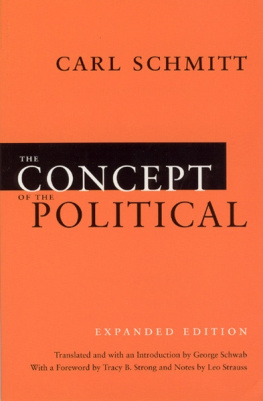


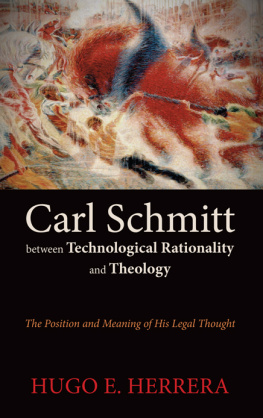
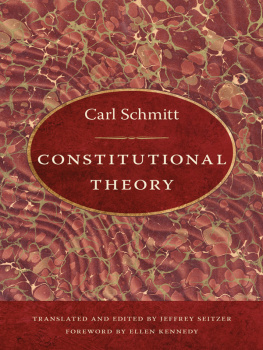
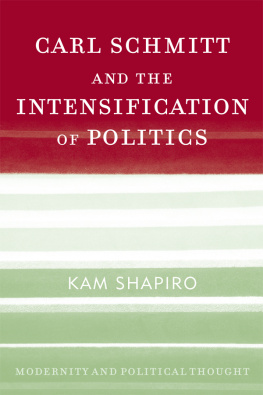
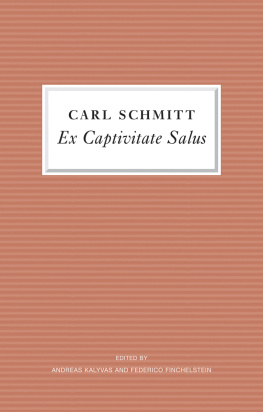
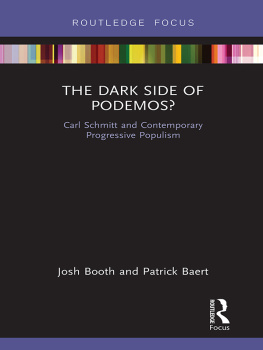
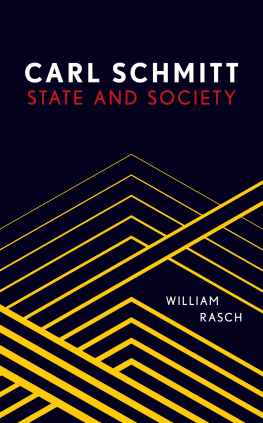
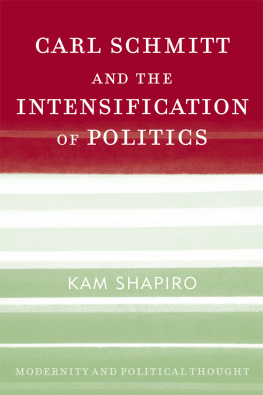
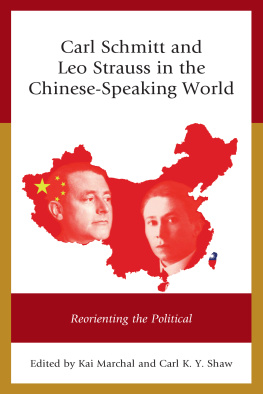

 The paper used in this publication meets the minimum requirements of the American National Standard for Information SciencesPermanence of Paper for Printed Library Materials, ANSI Z39.48-1992.
The paper used in this publication meets the minimum requirements of the American National Standard for Information SciencesPermanence of Paper for Printed Library Materials, ANSI Z39.48-1992.